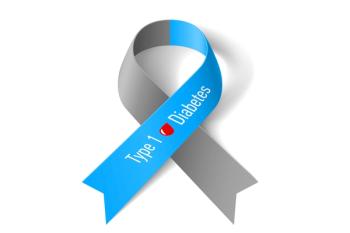
FDA Panel Supports Approving Teplizumab to Delay Type 1 Diabetes
FDA panel members acknowledged the challenges and significant unmet need that patients with T1D face, along with the small size of the pivotal study.
An FDA panel voted 10-7 on Thursday to support approval of teplizumab, based on question of whether the drug’s benefits outweighed the risks in delaying the onset of clinical type 1 diabetes (T1D).
The Endocrinologic and Metabolic Drugs Advisory Committee based its recommendation on safety and efficacy data from the pivotal TN-10 Study, which found that a 14-day treatment course of teplizumab delayed on the onset of insulin-dependent, clinical-stage disease by an average of at least 2 years in patients with presymptomatic stage 2 T1D, compared with placebo.
In
“The low prevalence of stage 2 type 1 diabetes makes it challenging to identify ‘at-risk’ patients for clinical studies, and studies of relatively long duration are needed to observe outcomes and quantify treatment benefits,” the FDA said.
Panel members acknowledged the challenges and significant unmet need that patients with T1D face, along with the small size of the pivotal study. Some pointed to the higher rate of serious side effects in the 44 patients who received teplizumab compared with the 32 who got a placebo (16% vs 3%).
However, the lack of treatments to prevent or slow progression of T1D is compelling. On the weekend prior to the hearing, T1D advocates were active on Twitter, calling on parents of T1D children or patients to submit testimony to FDA ahead of a Wednesday deadline. About 1.6 million people have T1D, and incidence is rising, especially among minority groups.
"We want to first and foremost thank everyone throughout the T1D community, the patients, the caregivers and the clinicians for their support today," said Ashleigh Palmer, co-founder and CEO, Provention Bio said
An argument in favor of approving teplizumab is that it would help patients avoid diabetic ketoacidosis, and it would give patients and caregivers time to learn how to manage blood glucose before failing to do so properly would be more life threatening.
The TN-10 Study was aided by TrialNet, the National Institute of Diabetes and Digestive and Kidney Diseases, and a current initiative called T1Detect is supported by JDRF to identify those at risk for developing the disease.
“We know the T1D community and at-risk patients and their families in particular are waiting urgently for access to clinical advancements to address their significant medical needs,” Palmer said. “We remain committed to working closely with the FDA to hopefully secure approval of teplizumab and potentially bring the first disease-modifying therapy in T1D to at-risk patients as soon as possible."
Provention Bio received Breakthrough Therapy designation for teplizumab and priority review designation for its Biologics License Application. The Prescription Drug User Fee Act action date is July 2, 2021. FDA is not required to follow Thursday’s vote in taking action, but a positive vote usually guides the agency.
This article has been updated to correct an error in an earlier version.
Newsletter
Stay ahead of policy, cost, and value—subscribe to AJMC for expert insights at the intersection of clinical care and health economics.









